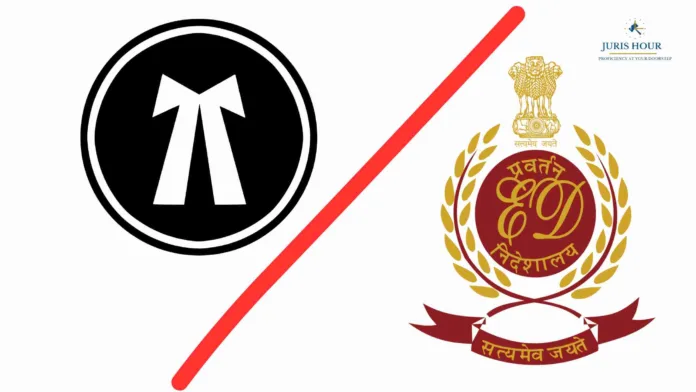The Supreme Court Advocates-on-Record Association (SCAORA) has issued a scathing statement condemning the Enforcement Directorate (ED) for issuing a notice to Senior Advocate Arvind Datar over a legal opinion rendered in his professional capacity. The Association described the move as an alarming case of investigative overreach that endangers both the independence of the legal profession and the rule of law.
In its official statement released today, SCAORA expressed “strong disapproval and unequivocal condemnation” of the ED’s action, calling it a misuse of authority that threatens the sanctity of legal counsel. “This action by the ED is not only unwarranted but reflects a disturbing trend of investigative overreach that threatens the independence of the legal profession and undermines the very foundation of the rule of law,” the Association noted.
Mr. Datar, widely respected for his integrity and professional ethics, was reportedly summoned in relation to a legal opinion he gave concerning ESOP grants. Though the ED later withdrew the notice, SCAORA emphasized that the mere issuance of such a notice constitutes an unacceptable affront to legal independence.
Highlighting the crucial role of advocates in the justice delivery system, the statement stressed that the independence of the Bar and the judiciary are deeply intertwined. “The effective functioning of courts is not possible without fearless and independent advocates. Coercive measures taken against lawyers for rendering legal opinions strike not just at individuals, but at the heart of the justice system,” it added.
The Association also pointed to long-standing Supreme Court jurisprudence that insulates legal advisors from liability for advice given in good faith. It warned that conflating legal counsel with criminal conduct, as implied by the ED’s action, is both legally and constitutionally indefensible. “Such actions send a chilling signal to the legal community and threaten the right of citizens to receive impartial legal advice without fear or pressure,” SCAORA cautioned.
Even though the ED subsequently withdrew the notice, the Association maintained that the initial action warranted a formal protest. “The withdrawal does not absolve the ED of its arbitrary exercise of executive power. This incident is symptomatic of a larger threat to the institutional independence of the Bar and the Judiciary,” the statement concluded.
Meanwhile, the episode has also reignited internal tensions within the legal fraternity. Earlier this month, Dr. Vikas Singh, President of the Supreme Court Bar Association (SCBA), wrote to the Chief Justice of India criticizing SCAORA for making representations on issues that, in his view, fall outside its purview. Singh asserted that SCAORA is a limited body representing only Advocates-on-Record and lacks the authority to speak for the broader Supreme Court Bar.
The ED’s notice and the subsequent backlash from legal bodies reflect growing concern over the perceived misuse of investigative powers and the need to safeguard the independence of legal professionals in a constitutional democracy.

